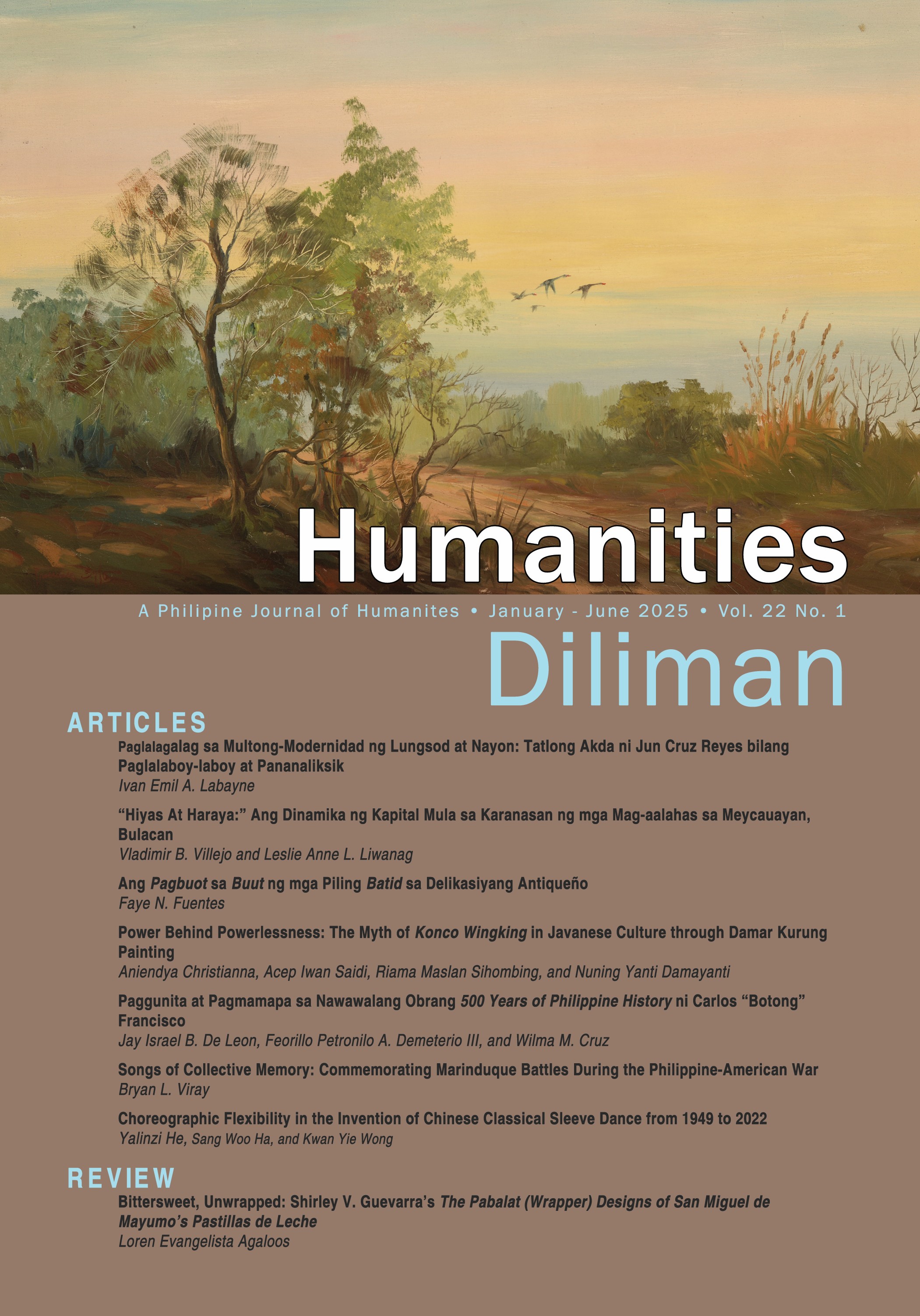Songs of Collective Memory: Commemorating Marinduque Battles During the Philippine-American War
Abstract
The rediscovery of Philippine nationalism and the anticolonial turn in narrating national history that emerged in the early twentieth century provide the context of this study which explores how authorized cultural heritage was produced in relation to Philippine national myth-making and the history of the Philippine-American War. Civic rituals like commemorations of war have been part of the making of a Filipino nationality and through memorialization, the nation-state perpetuates a history of an imagined Philippine nation that has generally favored the elite and metropolitan center. Memorialization, however, is not simple. Using the Authorized Heritage Discourse (AHD) and close reading of songs of collective memory, this study illustrates, how Marinduque’s “Awit sa Pulang Lupa” and “Pagpupugay sa mga Bayani ng Paye” both conform with and critique the imagined Philippine nation. The songs impart a local story asserting the nation’s diversity. The works of composers Eli Obligacion, Miguel “Myke” Magalang, and Celeste “Pinky” Manrique-Romulo grapple with the tension between nationalism and localism, reflecting the complex process of heritage-making. By infusing local flavor, they recast nationalism, creating local ballads that resonate with the rich, forgotten backstories of “Lupang Hinirang.” The study, thus, explains how songs of collective memory not only bear traces of colonial heritage and maintain banal nationalism, but also espouse an intangible heritage production both local and national.


